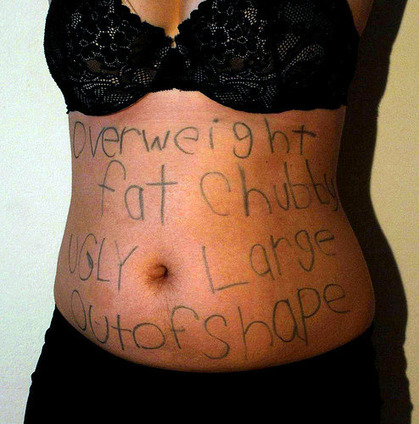Body dissatisfaction is too common, and families can help
Think back to the way your mom and dad talked about her and his body. Were they proud of their figures? Was either parent constantly dieting or talking about the need to lose weight, or even making jokes about a spare tire? How your parents and siblings relate to their bodies likely has a great effect on your body image.
The Body Image Research
A new study focused on college women found that young women with high family support and low levels of perceived socio-cultural pressure from family, friends, and the media regarding the importance of achieving a ‘thin and beautiful’ ideal had a more positive body image—and it isn’t hard to image that the same applies to men. The same women also rejected the superwoman ideal, had a positive physical self-concept, and were armed with skills to deal with stress.
Of course, society is arguably more focused on women’s looks than men’s, and discontent with appearance is common among women. Many women in contemporary Western cultures are dissatisfied with their bodies, a risk factor for eating problems. Dr. Shannon Snapp, from the University of Arizona, and colleagues published their research online in Springer’s journal, Sex Roles. Snapp and team examined factors that make women more resilient when it comes to their body image.
301 first-year college women completed questionnaires based on the Choate theoretical model, which hypothesizes that family and rejecting an ideal boost factors associated with well-being, which in turn is linked to positive body image in women. The authors conclude: “It is particularly important for women to develop a sense of self-worth that is not solely based on appearance, and to build resilience to pressures they may receive from family, friends, and the media.”
What to Do
Practical recommendations from the study:
- evaluate and become comfortable with the multiple and often contradictory expectations placed upon women in today’s society
- use effective coping skills
- foster a positive view of physical competence through exercise and health
- promote holistic well-being and balance in women’s lives
Can you put any of the recommendations into practice today?
Image: Some rights reserved by suez92

